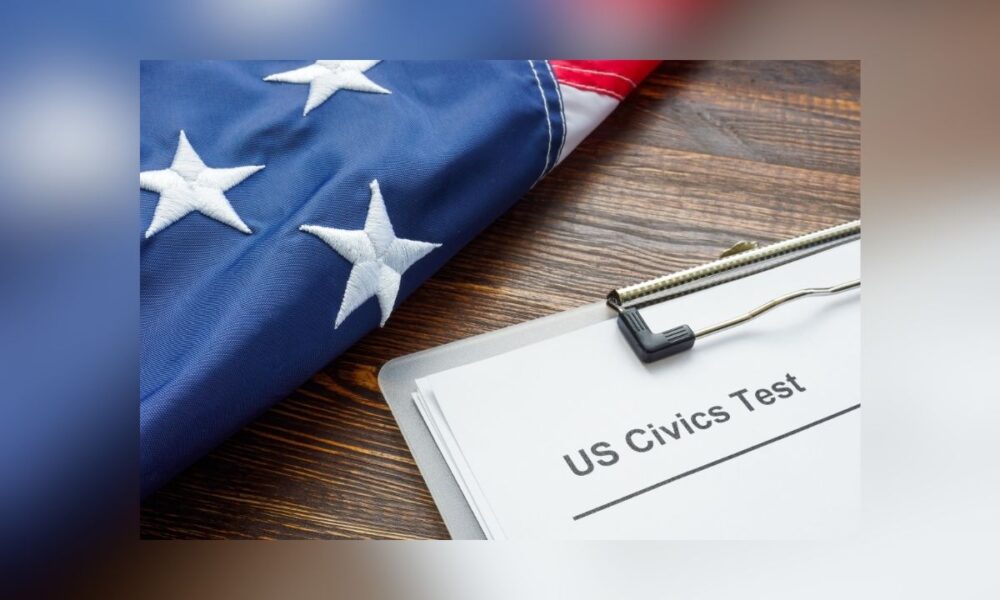Green card holders pursuing U.S. citizenship now face a steeper challenge with a revamped civics exam that demands higher scores.
U.S. Citizenship and Immigration Services rolled out the 2025 Naturalization Civics Test for all Form N-400 filers on October 20. The update expands the question pool to 128 from 100 and increases the passing threshold to 12 correct answers out of 20, up from six of 10 in the 2008 version. It combines items from the 2008 and 2020 tests, excludes geography queries, and focuses on history and government.
“The changes to the naturalization test could make passage more difficult for some test takers,” said Julia Gelatt, associate director of the U.S. Immigration Program at the Migration Policy Institute, per Newsweek.
Testing halts once applicants reach 12 correct or nine incorrect answers. Seniors 65 and older with 20-plus years as permanent residents get a lighter load: 10 questions from a 20-item bank, needing six correct. Answers may shift with elections, judicial picks, or law changes.
The exam, which originated during Trump’s first term, was replaced with the 2008 version under Biden and has since been revised this year to include tougher passing criteria. Retakes are allowed once; two failures sink the application. Moral character checks and neighborhood interviews add scrutiny for “good moral character” and American values.
“This new test is also being implemented as the Trump administration has pulled back funding for English and civics education, and is seeking to reduce future funding, which will make it harder for some noncitizens to prepare for the test,” Gelatt said, per Newsweek. “And it is happening while other changes are being made to the naturalization process, including a requirement that naturalization applicants provide evidence that they have ‘good moral character,’ and the reimplementation of neighborhood checks for some applicants. Taken all together, it seems likely that a smaller share of naturalization applicants will be successful going forward.”
USCIS spokesperson Matthew Tragesser defended the shift, telling Newsweek, “American citizenship is the most sacred citizenship in the world and should only be reserved for aliens who will fully embrace our values and principles as a nation. By ensuring only those aliens who meet all eligibility requirements, including the ability to read, write, and speak English and understand U.S. government and civics, are able to naturalize, the American people can be assured that those joining us as fellow citizens are fully assimilated and will contribute to America’s greatness. These critical changes are the first of many.”
Doris Meissner, a senior fellow at the Migration Policy Institute and former U.S. Immigration Service director, questioned the intent: “The way in which they’re explaining why they’re doing this, really casts doubt on people’s eligibility. It suggests that people applying for naturalization are somehow either not eligible or have questionable intent for naturalizing, or it needs to be clearly established that they will be good Americans.”
“In the past, experts have advised that the naturalization test be carefully designed and tested to ensure that it is measuring what it is meant to measure,” Gelatt added. “That has not yet happened. Without assessment, it is not clear that the test that was in place was failing to properly measure knowledge of U.S. civics, or that the new test will do a better job.”
Green cards risk revocation due to legal or eligibility issues, which aligns with deportation plans targeting individuals with criminal records.
Could you pass the test? A list of the 128 questions on the new test, along with the answers, can be found here.


